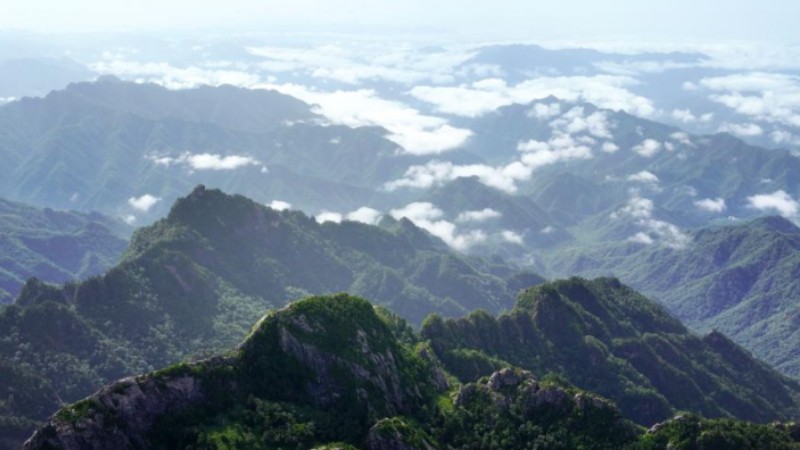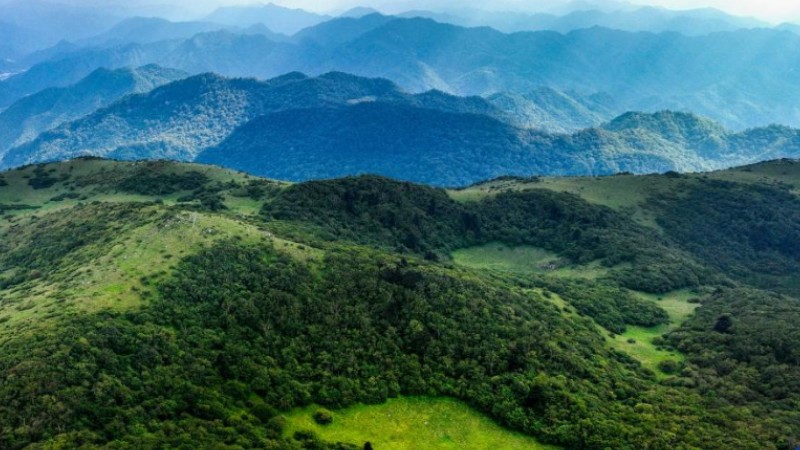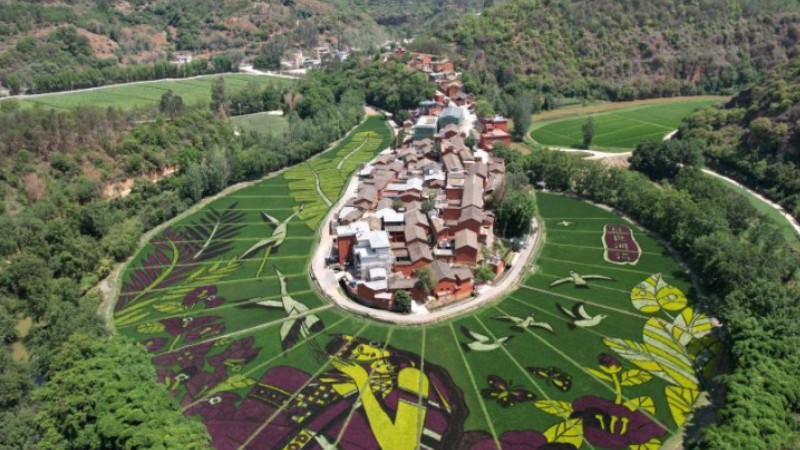Open-air cinemas enrich cultural life of residents in SW China's Xizang
As darkness fell, the Chinese action film "Operation Mekong" was screened in an open-air cinema that sits at an altitude of 4,500 meters in Baxiang township, Gyaca county, Shannan city, southwest China's Xizang Autonomous Region by the county's projection team.
The projection team has shown free movies in the open-air cinema located at a caterpillar fungus collecting site to farmers and herdsmen, who usually move to the site in April and stay there until late June, for more than 10 years. Watching movies in the cinema has enriched the cultural life of farmers and herdsmen.

①: Villagers watch Chinese action film "Operation Mekong" in an open-air cinema in Gyaca county, Shannan city, southwest China's Xizang Autonomous Region. (Photo/Zhao Lang)
②: Gyaltsen, head of the projection team in Gyaca county, Shannan city, southwest China's Xizang Autonomous Region. (Photo/Chungda Drolkar)
③: An open-air cinema in Gyaca county, Shannan city, southwest China's Xizang Autonomous Region. (Photo/Zhao Lang)
The projection team is one of the 478 digitized film projection teams in the countryside in Xizang. For more than half a century, projectionists of these teams have left their footprints on the plateau area to show free movies to residents, for whom watching movies is not only a source of entertainment but also a way to enjoy a colorful cultural life.
From film projectors to digital movie projectors, projectionists have always been presenting movies to villagers.
Nyima, a herdsman, said movies have been screened during the harvest season of caterpillar fungus for 10 years. When he was a child, he and his parents had to walk for an hour to watch films at an open-air cinema because they lived in a remote village. Watching films at the cinema enabled them, who seldom left their hometown, to see the outside world.
Gyaltsen, head of the projection team, has shown movies at the caterpillar fungus collecting site in Baxiang township for five consecutive years.
Since the harvest season of caterpillar fungus began in late April this year, Gyaltsen and his teammates, divided into four groups, went to four caterpillar fungus collecting sites at different altitudes in Gyaca county to screen movies for villagers every night.
"Nowadays, caterpillar fungus collecting sites have electricity and mobile phone signal, which means greater convenience for people. And watching films is not the only source of entertainment for them," Gyaltsen said.
Gyaltsen said villagers used to gather together to enjoy the movie in heavy snow.
As long as there is one spectator, Gyaltsen will set up the open-air cinema on time. "In the past, it usually took one hour to install devices, but now we can screen a film by turning on a digital movie projector," said Gyaltsen, who has been providing film projection services for over 40 years, witnessing the development of the service in rural areas in Xizang.
The projection team of Gyaca county is scheduled to screen 888 movies every year. However, it exceeds the expected targets each year. In 2021, the projection team screened over 900 movies.
Gyatso, one of the members of the projection team, often showed films in pastoral areas at an altitude of more than 4,800 meters. According to Gyatso, in the past, team members had to load devices including projectors, films, generators, as well as food on horses to show movies.
If a generator conked out, movie projectionists had to carry it to the county seat so that it could be repaired, said Sonam Tobgye, another projectionist of the team.
Since 2000, generators and projectors with better quality have been used. In 2015, the projection team no longer needed to worry about electrical access.
"Now, local transportation conditions have greatly improved, with asphalt roads connecting the county seat with each township, except for a small part of unpaved roads in villages," said Gyaltsen.
As cell phones and networks enable residents to search for cultural content, the projection team chooses villages with relatively concentrated populations to screen films.
Unlike in the past when people only had access to a limited variety of movies, the films screened today are of different genres and subjects, including feature films, popular science films, war, romantic, and science-fiction movies.
Dorje became a rural movie projectionist in the early 1970s. In addition to showing movies, Dorje was responsible for repairing projectors and generators, and splicing films.
During China's first scientific research survey on the Qinghai-Tibet Plateau, Dorje met several scientific research members who lived in Gyaca county and was inspired by them. In 1974, over 20 young Tibetans, including Dorje, began to study at Chengdu University of Geology (now Chengdu University of Technology) in southwest China's Sichuan Province. Now, Dorje is a world-renowned geologist and an academician of the Chinese Academy of Engineering.
Today, movies are also screened indoors in some villages in the county, and movie projectionists now drive cars to projection locations.
As people now have more channels to watch movies, the number of projectionists of the projection team have gradually decreased since 2010. The projection team now has only four projectionists. However, to Gyaltsen's satisfaction, the projection team always has an audience.
Photos
Related Stories
- 3D paintings add beauty to village in SW China's Xizang
- In pics: Rituo Temple on north shore of Yumzhog Yumco Lake in SW China's Tibet
- Tibet Story: Backpacker delivering charitable donations across China's Tibet
- Panchen Rinpoche attends religious activities in Tibet's Drepung Monastery
- Charming view of Puma Yumco Lake in Tibet
- White eared pheasant seen in SW China's Tibet
- Panchen Rinpoche wraps up tour of Tibet's Qamdo
Copyright © 2023 People's Daily Online. All Rights Reserved.









